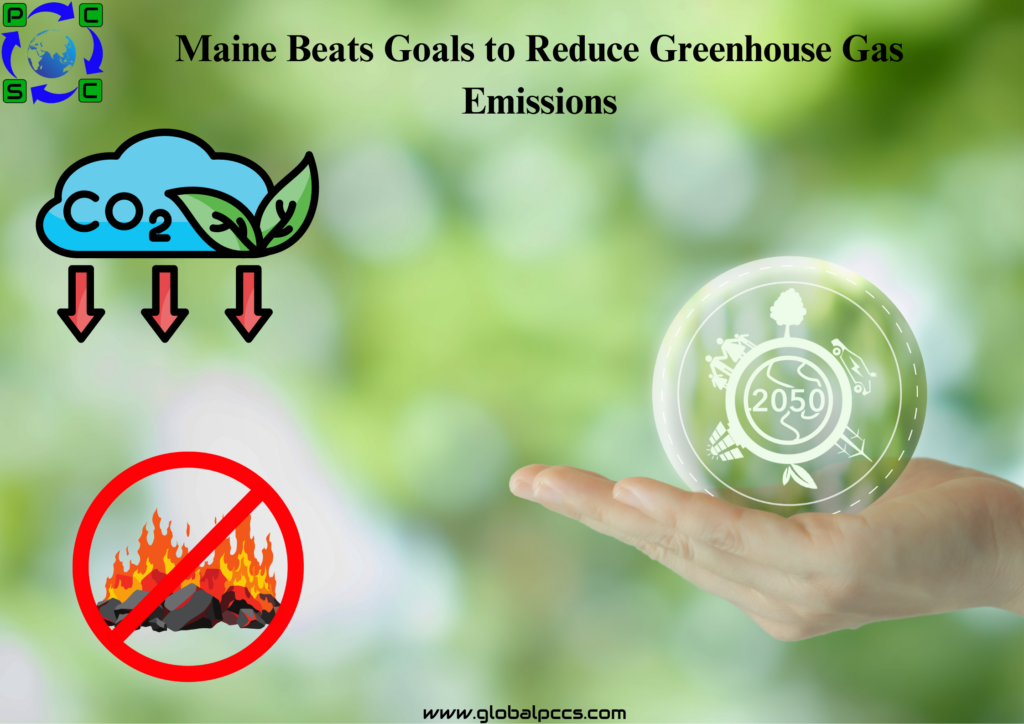 Significant progress in the fight against climate change has been declared by the Maine Department of Environmental Protection (DEP). In its Tenth Biennial Report, the department recognizes noteworthy accomplishments in lowering greenhouse gas (GHG) emissions. According to the statistics, Maine’s gross greenhouse gas emissions fell by 30% from 1990 levels by 2021, greatly exceeding the state’s 2020 target of a 10% reduction.
Significant progress in the fight against climate change has been declared by the Maine Department of Environmental Protection (DEP). In its Tenth Biennial Report, the department recognizes noteworthy accomplishments in lowering greenhouse gas (GHG) emissions. According to the statistics, Maine’s gross greenhouse gas emissions fell by 30% from 1990 levels by 2021, greatly exceeding the state’s 2020 target of a 10% reduction.
Even while GHG emissions increased after 1990 and peaked in 2002, there has been a noticeable decrease in recent years due to a number of climate-friendly efforts. The COVID-19 epidemic caused emissions to decline in 2020; however, when activity restarted in 2021, emissions slightly increased.
Maine is well on its way to reaching its 2022 target of becoming carbon neutral by 2045, as seen by its outstanding accomplishments. Additionally, the state has pledged to cut its gross greenhouse gas emissions by 45% by 2030 and 80% by 2050 compared to 1990 levels.
65% of Maine’s greenhouse gas emissions come from the burning of fossil fuels, making energy consumption the main contributor to the state’s 94% GHG emissions. Nonetheless, since their high in 2002 and after a 30% decline since 1990, energy-related emissions have dropped by 41%.
By using environmental sequestration to offset 91% of gross greenhouse gas emissions, Maine is currently 91% of the way towards becoming carbon neutral. Due to improved carbon storage in forestland and wood products as well as a decrease in gross greenhouse gas emissions since 2016, this progress has been made.
According to the research, since 2002, the electric power industry has reduced its yearly CO2 emissions from burning fossil fuels by 79%. This decrease has been fueled by the switch to lower-carbon energy sources including renewable energy and natural gas. Maine’s transportation industry still contributes about half of the state’s CO2 emissions from fossil fuels, although its yearly emissions have decreased in 2021, currently 9% below 1990 levels.
In comparison to its GDP, Maine’s greenhouse gas emissions are still declining. In comparison to 1990, emissions per million dollars of GDP decreased by 59% in 2021.
The transportation sector continues to be the most polluting in the state, with emissions from commercial, industrial, and residential sources far behind. Despite a little decline since 1990, transportation-related emissions continue to be very high.








 Authorised IMDS & CDX Training & Consulting partner for
Authorised IMDS & CDX Training & Consulting partner for





